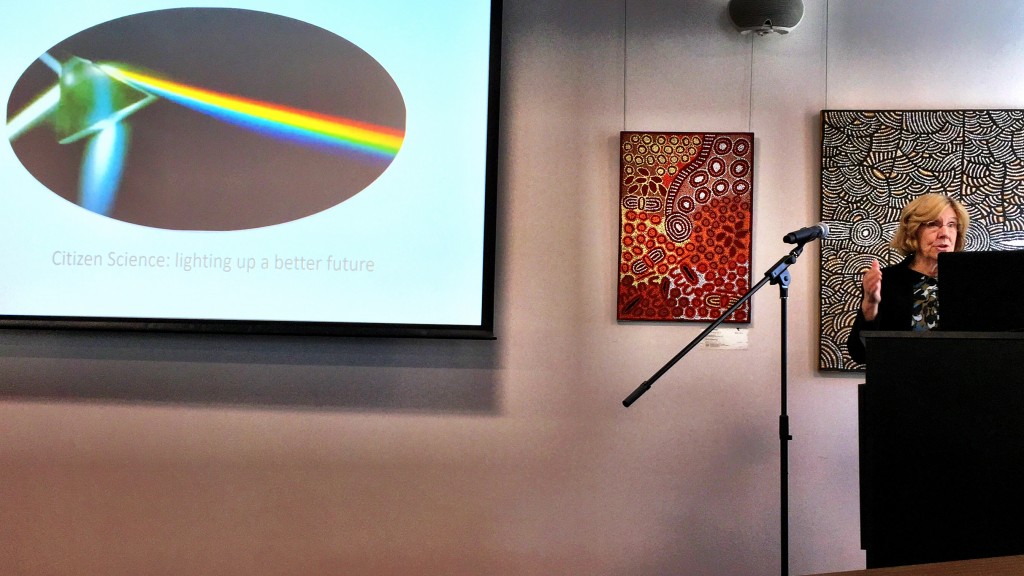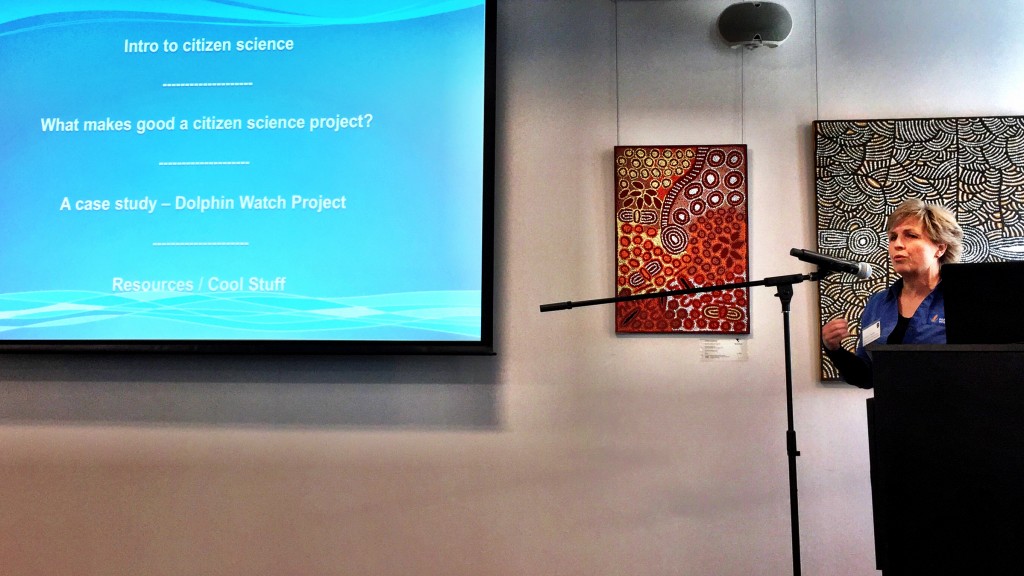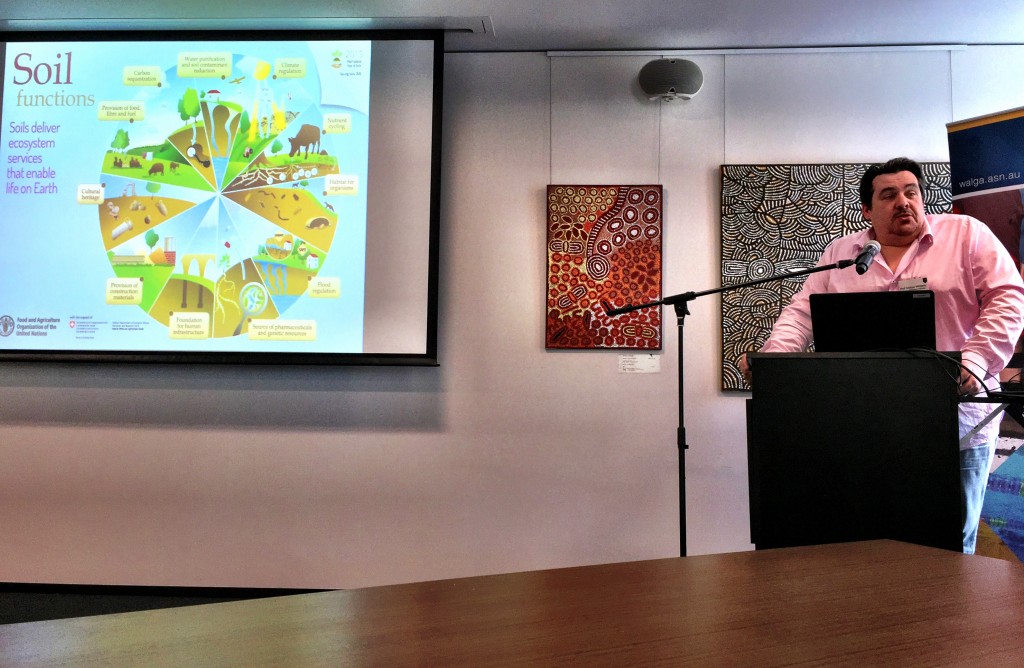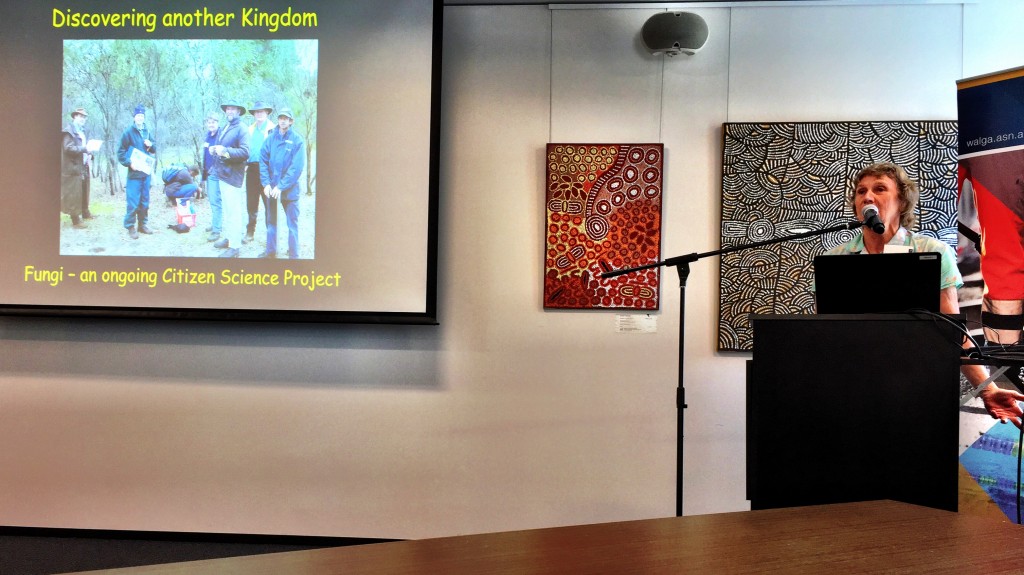The Natural Area Managers Network (NAMN) Forum on Citizen Science was held on 26 September and hosted by the WA Local Government Association. The event, aimed especially at local government officers, provided an excellent overview of the range of citizen science programs running in the State, and I went along to represent Gaia Resources, and to support our clients who presented on citizen science projects we’ve worked with them on.
Former WA Chief Scientist and keynote speaker Professor Lyn Beazley gave her typically enthusiastic and empowering call to arms for scientists and local communities to work together to achieve cost-effective environmental monitoring programs, ensure ecological research informs policy and management practices, and increase environmental awareness.
Professor Lyn Beazley opening the event
Expert practitioners from State and Local Government departments, the WA Biodiversity Science Institute, the Conservation Council of WA, Northern Agricultural Catchment Council, Universities and community organisations each described their project concepts and best practice leading to real conservation outcomes.
Dr Kerry Trayler and Marnie Giroud from DBCA presented what was, for me, the highlight of the forum, with a detailed analysis of ‘What makes a good citizen science project‘ using the Dolphin Watch project as a case study.
Dr Kerry Trayler outlining the Dolphin Watch project as a case study of citizen science
Professor Andrew Whiteley (UWA) showcased MicroBlitz – uncovering the microbial diversity in Western Australia’s soils – a project we are happy to be working on again with the aid of an Inspiring Australia grant! You can see more about our previous work with Microblitz here.
Professor Andrew Whiteley explaining the importance of soil microbes
Roz Hart, former President, WA Naturalists’ Club delivered a plea for recognition of the importance of another often-overlooked kingdom of life, with the Perth Fungi Project – perspectives of a citizen scientist.
Roz Hart explaining the importance of fungi
Other talks of great interest included:
- Citizen science informing biodiversity outcomes – Dr Lesley Gibson, Biodiversity Survey Program Director, WABSI
- Designing citizen science projects to inform policy relevant investigations – Dr Nic Dunlop, Citizen Science Program Coordinator, Conservation Council (WA)
- Backyard Bandicoots – residents assisting with wildlife conservation – Bonnie Beal Richardson, Senior Environmental Education Officer, City of Mandurah; Dr Catherine Baudains and Dr Trish Fleming, Murdoch University
- Photomon – detecting environmental change over time using photo monitoring – Tegan Clarke, Photomon Services Project Officer, NACC
Seven presentations from this Citizen Science forum are now available online, at the top of this page – and are well worth a look. Some of these would be great talks to hear again at the Australian Citizen Science Conference coming up in February 2018 in Adelaide (more about that here).
If you’d like to know more about Citizen Science please leave a comment below – or email me directly via alex.chapman@archive.gaiaresources.com.au. Or, feel free to start a conversation with us via Facebook, Twitter or LinkedIn.
Alex





Comments are closed.